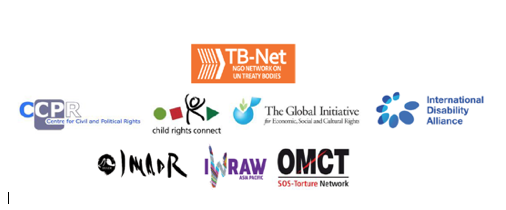Oral statement: Informal consultation in the process of consideration of the state of the UN human rights treaty body system

Oral Statement: Informal consultation by the co-facilitators of the process of the consideration of the state of the UN human rights treaty body system with representatives of civil society, National Human Rights Institutions and all other relevant stakeholders on 28 August 2020
Thank you Chair,
We extend our thanks to the co-facilitators for organising this consultation with stakeholders. Given the fundamental role of Civil Society in the treaty bodies system, it’s important that we are part of the discussion. I am delivering this statement on behalf of the World Organisation against Torture (OMCT) and TBNet, a group of international NGOs and Networks working in strategic partnerships with one of the UN treaty bodies, of which OMCT is a member.
In the context of this review process, we have discussed over the past years on how to strengthen the treaty body system, focusing in particular on how to best ensure that the system is accessible to rights holders, responsive to victims of human rights violations, and encourages all States parties to be compliant with their human rights obligations.
CSO consultations were organised to hear the views of a range of organisations from the national, regional and international levels from different parts of the world. The process culminated in a joint civil society document, the Civil Society Proposals, endorsed by 86 NGOs.
I will focus on the five overarching principles highlighted in the Civil Society Proposals which should underpin any reform to the treaty body system:
1. Human rights protection. The ultimate aim of any reforms to the Treaty Body system must be to improve the realization of human rights on the ground. The promotion of human rights and the protection of rights holders must be at the center of the 2020 review.
2. Specificity within one System. The treaty body system should be seen as one system, in which the specificity of each Treaty and Committee is retained with all the treaty bodies at an equal footing. Each treaty body must be able to continue to decide and adopt their own rules of procedure and working methods and align where appropriate.
3. Adequate Funding. States must ensure that the system receives sufficient funding to be able to carry out its mandates. The GA Resolution 68/268 continues to provide an appropriate framework for funding and States must respect the formula it established and pay their contributions in time.
4. Civil society participation. A vital part of the functioning of the treaty body system is the contribution of civil society. Full, meaningful and safe civil society engagement should be reflected in this review and any reforms to the treaty body system, by strengthening the accessibility and effectiveness of the mechanisms to civil society, including for civil society representatives with disabilities. The use of technology like webcasting and video conference is important for their access.
5. Independence. Finally, the independence of the treaty bodies and of committee experts should be preserved, since independence is key to the credibility and effectiveness of the system. We strongly oppose a Code of Conduct for the treaty bodies as it would disastrously undermine the independence of the treaty bodies, the effective functioning of the system resulting in the deterioration of human rights compliance on the ground.
We strongly encourage the co-facilitators to include these principles in their report. The joint CSO document also included concrete reform proposals and addressed treaty body membership; both will be presented separately by my TBNet colleagues.
Thank you.